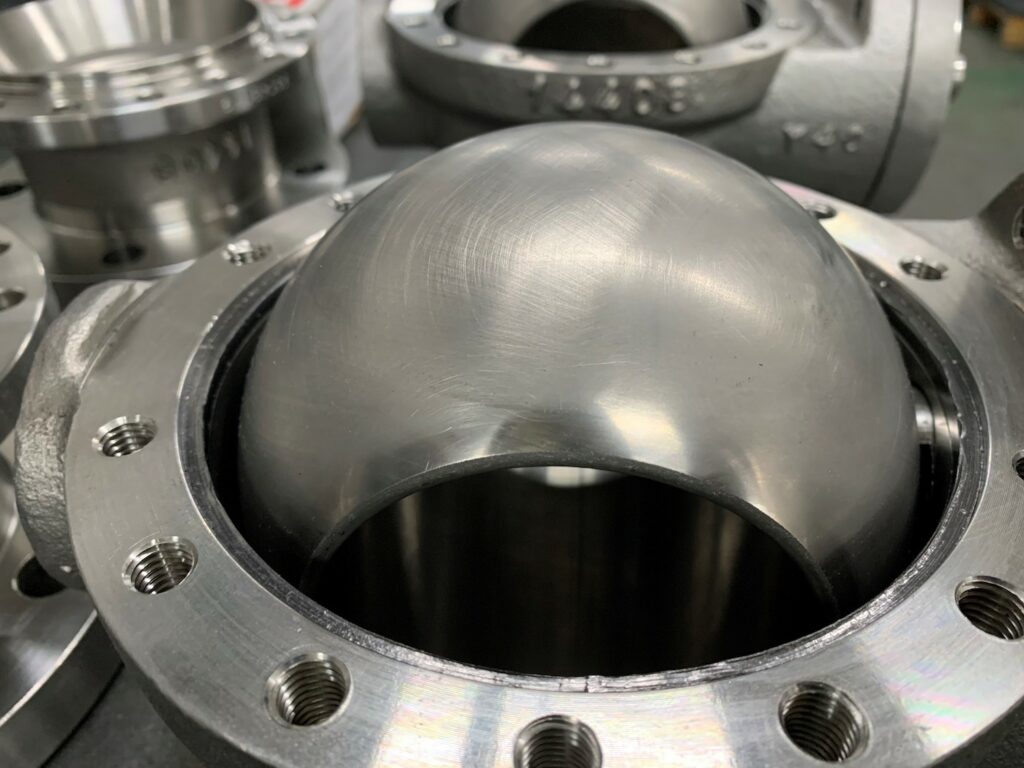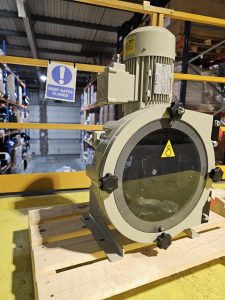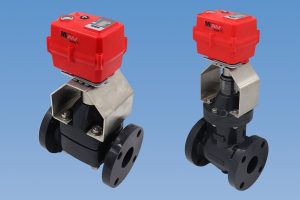Variety of Valve Types to Suit Every Need
At the heart of chemical process optimization are the various categories of industrial valves. From versatile ball valves that provide precise flow control to robust gate valves that excel in tight shut-off applications, the chemical industry requires a diverse range of solutions. Globe valves find their utility in fine flow regulation, while butterfly valves offer an efficient option for controlling large volumes of fluid.
The variety of valve types allows companies in the chemical industry to tailor their systems to the specific needs of each process. Each valve type has its own unique characteristics, allowing for precise and customized selection according to operating requirements.
Materials Selection for Corrosion Resistance and Aggressive Chemicals
Corrosion resistance is an imperative requirement in the chemical industry, where components are constantly exposed to aggressive chemicals. This is where the choice of suitable materials becomes a critical factor. High-quality industrial valves are constructed using advanced materials that offer exceptional corrosion resistance.
Materials such as stainless steel, nickel alloys and special coatings provide an effective barrier against corrosion. The durability and longevity of these valves are directly related to the quality of the materials used in their construction.
Adherence to Rigorous Quality Standards and Regulations
Safety is a priority when handling chemicals, and industrial valves must meet stringent regulations and standards to ensure safe and reliable performance. Standardization and certification bodies establish specific guidelines for the manufacture and operation of valves in chemical environments.
The regulations and standards address aspects such as pressure resistance, leak-tightness, and durability of valves. Adherence to these standards ensures that valves meet the essential requirements for application in the chemical industry.
Automation and Control for Process Optimization
Process automation has revolutionized efficiency in the chemical industry, and automated valves play a key role in this advancement. The ability to control flow accurately and quickly contributes to process optimization, improving operational efficiency and reducing the risks associated with manual handling.
The integration of advanced control systems allows valves to be monitored and adjusted remotely, adapting them to variations in process conditions. This not only improves efficiency, but also reduces the possibility of human error.
Technological Innovations for Specific Challenges
The constant search for improvement has led to significant technological innovations in industrial valve design. Leading companies in the industry are incorporating smart features into our products to address specific challenges. Real-time monitoring sensors, self-diagnostic systems and advanced sealing technologies are examples of innovations that improve the reliability and safety of valves in chemical environments.

Continuous research and development in the field of industrial valves seeks solutions to particular challenges, such as chemical variability and extreme operating conditions. These innovations not only improve valve performance, but also contribute to overall process efficiency in the chemical industry.
Sustainability and Environmental Contribution
Sustainability is a central theme in all industries today, and the chemical industry is no exception. Industrial valves incorporating sustainable practices and eco-friendly materials are gaining prominence. Energy efficiency in valve operation, reduced emissions and the use of recyclable materials are key aspects of this sustainability trend.
The environmental contribution of industrial valves goes beyond their operation in chemical processes; it extends to manufacturing practices and waste management. Leading companies recognize the importance of this holistic approach to sustainability.
Overcoming Common Challenges in the Chemical Industry
The chemical industry presents unique challenges that quality industrial valves are designed to overcome. Corrosion, resulting from constant interaction with aggressive chemicals, is one such challenge. High-quality valves employ corrosion-resistant technologies and materials to ensure long service life and reliable performance.
Chemical variability, where the composition of products can change, is also addressed by valves designed to adapt to different conditions, and abrasion-resistant valves find application in environments where fluids are used.
Common Challenges and Solutions from FHT Valves
Corrosion, abrasion and chemical variability are common challenges. Discover how FHT Valves’ valves overcome these challenges, offering robust and durable solutions to maintain system integrity in demanding chemical environments.
We look to the future of valve technology in the chemical industry and how FHT Valves anticipates and adapts to the changing demands of the industry. Our vision is to remain a leader in providing innovative and sustainable solutions for the chemical industry.
With a wide range of products and an ongoing commitment to excellence, FHT Valves’ valves are the preferred choice for companies looking to optimize their operations in the chemical industry, such as vat bottom, integral seat or metal seated valves.
Source of Article



